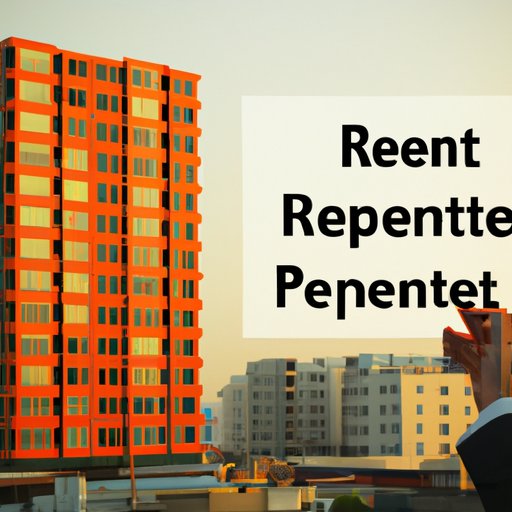Introduction
Real estate investing can be an excellent way to build long-term wealth. For those looking to get started in the world of real estate investing, understanding the concept of “investment property” is essential. An investment property is any type of real estate that is purchased with the intention of generating income or increasing in value over time.
The purpose of this article is to provide an overview of what makes a good investment property, how to identify one, and how to manage it for maximum returns. We will also look at different types of investment properties, how to evaluate them, and tips for negotiating the best price.

Analyzing the Market: How to Identify Good Investment Properties
The first step in identifying a good investment property is to research the local real estate market. This involves understanding the area’s population growth, economic trends, job opportunities, and other factors that could potentially impact the value of your investment. It is also important to consider the types of properties that are in demand in the area, as well as the current rental rates and vacancy rates.
It is also important to investigate any tax benefits and incentives that may be available for investment properties in the area. Many cities and states offer special tax breaks for those who own rental properties, which can significantly reduce your overall costs.

Exploring Different Types of Investment Property
When it comes to investment properties, there are several different types to consider. Single family homes are the most common type of investment property, but there are also multi-family properties, vacation rentals, and commercial properties.
Single family homes are typically the easiest type of investment property to manage, and they often have the highest potential for appreciation. Multi-family properties, such as duplexes and fourplexes, offer the benefit of multiple rental units in one building, allowing you to generate more income from one property. Vacation rentals are a great option if you are looking to rent out your property on a short-term basis, while commercial properties can be a great way to generate long-term income.

Locating and Evaluating Investment Properties
Once you have identified the type of investment property you are looking for, the next step is to locate and evaluate potential properties. The best way to do this is to utilize a local real estate agent who has experience working with investment properties. They can help you identify properties that meet your criteria and provide valuable insights into the local market.
Once you have identified a few potential properties, it is important to perform due diligence to ensure the property is a sound investment. This includes researching the property’s history, inspecting the condition of the property, verifying zoning regulations, and obtaining a professional appraisal to determine its fair market value.
Calculating the Return on Investment for Investment Properties
Once you have identified a property that meets your criteria, it is important to calculate the potential return on investment (ROI). To do this, you need to estimate the initial purchase price, ongoing expenses (e.g., taxes, insurance, repairs, etc.), and potential rental income. This information will help you determine whether the property is a good investment and if it will generate the desired return.
Negotiating the Best Price for an Investment Property
Once you have identified a potential property and calculated the ROI, the next step is to negotiate the best price. To do this, you need to understand the current market prices for comparable properties in the area. You should also make sure to have a clear understanding of the seller’s motivations and have an idea of what terms you are willing to accept.
When making an offer, it is important to be realistic and firm. Be prepared to walk away if the seller is not willing to meet your terms. If the seller does accept your offer, make sure to get everything in writing to protect your interests.
Tips for Managing Investment Properties
Once you have purchased an investment property, it is important to create a comprehensive plan for managing it. This includes establishing policies and procedures for tenants, setting up a system for collecting rent, and making sure all maintenance issues are addressed promptly. It is also important to establish a budget for ongoing expenses and set aside funds for unexpected costs.
Hiring a professional property manager can be a great way to take the stress out of managing your investment property. A property manager can handle tenant relations, take care of routine maintenance tasks, and keep track of finances. While hiring a property manager can be expensive, it can save you a lot of time and effort in the long run.
Conclusion
Investing in real estate can be a great way to build wealth. To ensure a successful investment, it is important to understand what makes a good investment property, how to identify one, and how to manage it for maximum returns. Researching the local real estate market, examining rental rates and demand, and investigating tax benefits and incentives can all help you identify potential investment properties. It is also important to evaluate potential properties, calculate the return on investment, and negotiate the best possible price. Finally, creating a comprehensive plan and hiring a professional property manager can help you manage your investment property successfully.
(Note: Is this article not meeting your expectations? Do you have knowledge or insights to share? Unlock new opportunities and expand your reach by joining our authors team. Click Registration to join us and share your expertise with our readers.)
